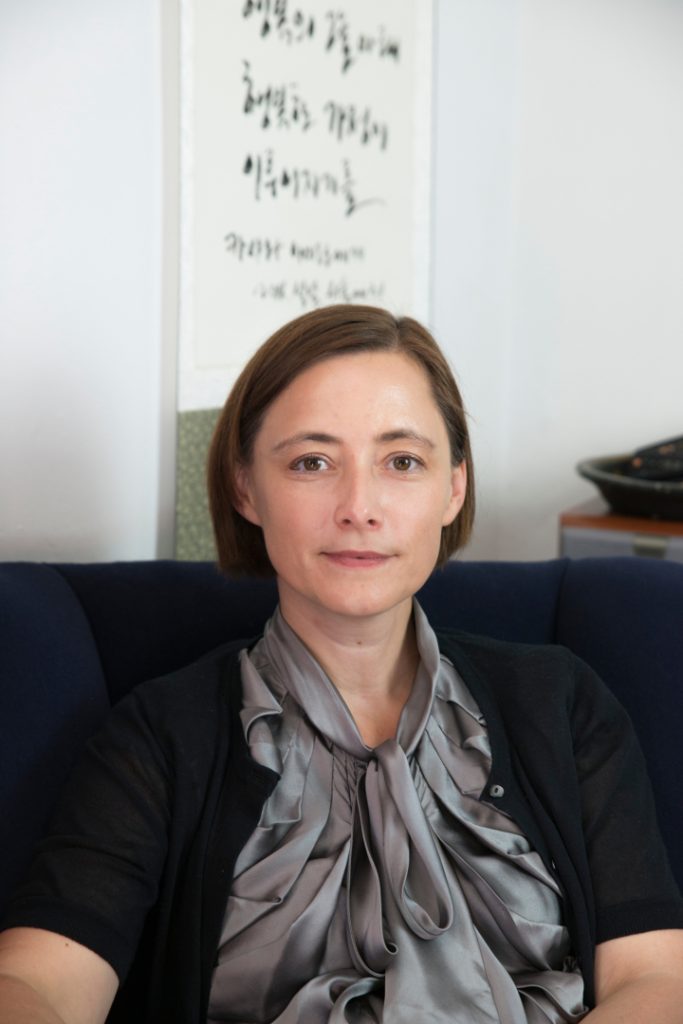
Joanna Hosaniak was born in 1973 in Warsaw, Poland. Through her father, who was an engineer often taking on contracts in Japan, she was exposed to the Far Eastern culture. She enrolled at the Faculty of Japanese Studies of the Warsaw University. She passed her entry exams, however, due to lack of places, she ended up in Korean Studies. She was with the first class who studied South Korean Philology at the Faculty of Oriental Studies as opposed to North Korean Philology. During that time, Joanna developed an interest with the fates of the citizens of the Democratic People’s Republic of Korea, their day-to-day lives and repressions they faced in this isolated country. After graduation, she worked at the Embassy of South Korea in Warsaw. Her growing interest in human rights infringements in North Korea made Joanna take a course organised by the Helsinki Foundation for Human Rights, where she started working afterwards.
In 2003, the South Korean Citizen’s Alliance for North Korean Human Rights (CAfNKHR) organised a conference in Warsaw on the topic of refugees and human rights in North Korea in cooperation with the HFHR. Joanna was one of the organisers on the Polish side. Seeing her dedication, the CAfNKHR Director offered her a job at the organisation’s headquarters in Seoul. After two months, Joanna moved to South Korea. In 2013, CAfNKHR efforts resulted in the UN setting up a committee to make North Korea pay for her crimes against humanity. At the same year, Joanna became an honorary citizen of Seoul in recognition of her activities for human rights in North Korea, and was the first foreigner amongst the Dong-a Ilbo magazine’s 100 persons having the biggest influence on South Korea. In 2016, she defended her doctoral thesis in international relations at the Sogang University in Seoul in the scope of transition period law in Central Europe, and legal order changes and possibility of applying certain mechanisms if the two Koreas were to unite.
Today, Joanna Hosaniak is the Deputy Director at the Citizen’s Alliance for North Korean Human Rights. In her opinion, North and South Korea will be united soon.
Interview conducted by Barbara Majchrowicz on 26 August 2017 in Warsaw.
Photography and editing by Łukasz Laskowski
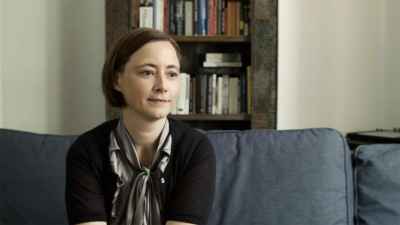
Korean Studies was just a coincidence. I was in highschool when The Political Transformation began. My whole class was thinking about the future after the end of the highschool and basically everyone in my class decided that they’d become either lawyers or economists, because at that time those were the most needed professions. I, on the other hand, was preparing for an entrance exam to National Academy of Dramatic Art here in Warsaw, but I resigned from this idea in the very last moment. Due to the fact that I didn’t want to become a lawyer, I decided to go for something more original. My father worked as an engineer and had an idea to start importing Japanese technology to his workplace. He was very interested in the Culture of the Far East and we talked a lot about it at home, so I decided that maybe I should undertake Japanese Studies. I was accepted, but due to the lack of spots I was told to study something else for a year and then try to change my deegree program to Japanese Studies. I was offered Korean Studies instead. That was in fact the second deegree course that I had in mind. Back then in Poland there was a lot of information about Japan, due to available books and films, but there wasn’t much knowledge about Korea. Even to the point when people asked which Korea is the good one - North or South? Which continues to this day, people wonder which one is the communist one. There were no translations, no films, no k-pop that is now popular even in Poland. I just decided that I was going to undertake Korean Studies and that’s all. The studies were captivating yet demanding at the same time and the language is difficult to learn. Korean language itself isn’t the most complicated one but Chinese characters which are used in it, ideograms, were pretty difficult to learn. My studies differed from the studies of my friends, who had to learn a lot just before an examination session and then, after the session, they were off. Korean Studies required a lot of hard work. Those four years I could easily compare them to being in primary school. As you can imagine there weren’t too many people undertaking Korean Studies at that time. If ten people started the studies, then usually only five of them made it to the end. Nowadays Korean Studies are available in different cities in Poland. I see that now there are a lot of people interested in those studies, but back then, we were in the minority.
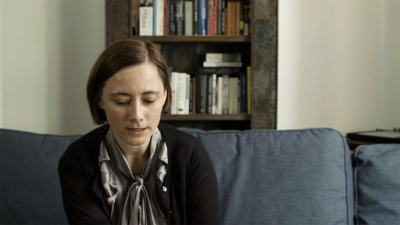
In fact, only a year earlier, my older colleagues had been taught by professors from North Korea. I was in the first group that was being taught by the professors from South Korea. During classes we only discussed South Korea. We barely spoke about North Korea, even though some of our professors had come from Pyongyang and had studied there at the Kim Ir-sen University in Pyongyang.
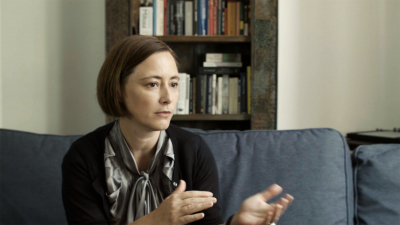
It was my second visit to this country, because during my studies I went there for a short language course. It was a three months course at the Yonsei University in Seoul. I went there with my fellow colleague from Korean Studies. It was very short, but it was my first clash with North Korea, quite shocking I recall, but I’m glad that I went there before, because thanks to the first trip, the second one wasn’t as shocking. Weather, horrible heat waves and humidity, different food and behaviour, as well as language barrier, because back then we weren’t yet fluent enough to communicate with natives e.g. in shops, so we had to use hand gestures to show that we’re looking for e.g. a fabric softener. Lady in a shop was laughing because she had no idea what we wanted. The first trip was difficult, yet was also interesting. I recall this particular incident when a North Korean submarine with spies appeared in South Korea. Security service was trying to catch the spies so they closed and surrounded with police all of the universities. It was an additional, tangible contact with North Korea. The border is about 50 km from Seoul and there, it is this different country which remains in constant danger. I witnessed a tangible proof that something always could happen.
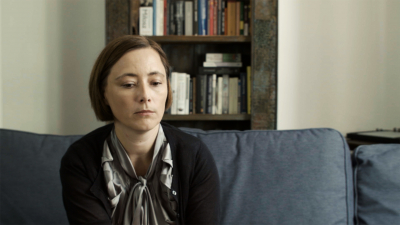
When I started studies, more or less in one or two years time first South Korean companies started to invest in Poland. First it was Daewoo, then LG and so on. The majority of my colleagues took up a job as translators, so I knew that it was some kind of a possibility. I was still looking for a path for myself, because every young person searches for a path. During my studies I was going through a lot of materials covering the situation in North Korea. First internet in the beginning of 90s, the really old computer with big screen where one could search for information. First materials about the situation in North Korea, that were online, were the materials prepared by the biggest non-governmental organisations in the West such as Human Rights Watch and Amnesty International. Their reports were describing the state of human rights and were mentioning the concentration camps in North Korea. I was very interested in this topic, but since I was a young person living in the country that was still in the process of going through the political transformation, I had no idea how could I engage myself in the issue of North Korea. So I took up a job in the South Korean Embassy here in Warsaw. I worked there for four years. It was quite an interesting job, because it was all about preparing different kind of visits, trade cooperation, political cooperation as well as cultural cooperation, so as I said before, it was very interesting work opportunity, but in a way I felt as if I were trapped in a box. It seemed to me that diplomats don’t have the opportunity to speak their mind. This is politics so people, diplomats as well as local staff, has to always be careful about what they’re saying, if e.g. journalist calls and asks questions. It was when I reached the conclusion that even if I transfered to the Ministry of Foreign Affairs, something like this probably wouldn’t suit me.
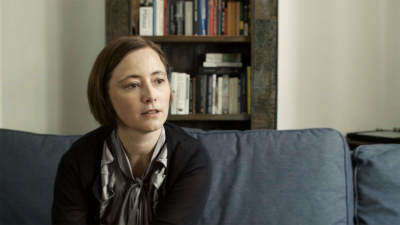
My colleague told me about studies in Helsinki Foundation for Human Rights. Those were the studies precisely for activists, people, who were associated with Human Rights Movement. The foundation was organising courses and I decided to apply there, because I thought that maybe through studying there I would begin some kind of activity for North Korea. It was the first moment when I realised that I would like to pursue this topic seriously, yet I didn’t know precisely what I could really do with it. The school was a real breakthrough for me. I had the possibility to work and maintain contacts with people who were actually fighting for freedom here in Poland as well as with the biggest figures in the field of law and so on. I was learning from the very best.
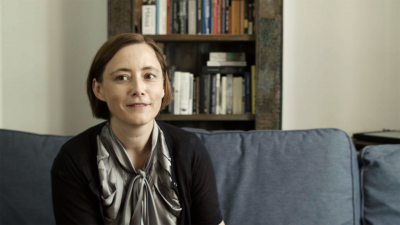
The organisation where I now work, Citizen’s Alliance for North Korean Human Rights, approached Helsinki Foundation for Human Rights to coorganize a conference on North Korea and its defectors. The foundation hired me to be the coordinator of this particular conference and that’s what I did. It was a moment of a complete formation for me, because it was all about preparing the conference of 2004. The conference was opened in Polish Parliament. A lot of people, not only from around Poland, but also from abroad came to this particular event. There was a lot of media attention. It was the first time when the theme of concentration camps surfaced. Poles were really interested in the subject, mainly due to our own history. I was getting hundreds of e-mails from people reading the articles, because of the fact that some of the attendees were North Korean defectors, including the ones that had spent a part of their life in concentration camps. Their statements made a huge impact in Poland. People started contacting the foundation telling us that sometimes they had even tried to measure out on a scale how much of grains is in 30 grams - daily portion of grains for prisoners in North Korean concentration camps - and to be able to imagine it they had to spread it on a plate. That’s how they tried to understand the reality of the concentration camps in North Korea. It was incredibly touching.
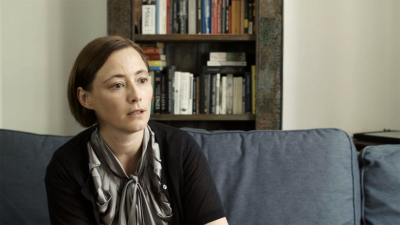
Organisation invited me the next day. I was asked if I wanted to go to South Korea to work with them because they needed someone to expand their international activity and to speak about North Korea on the international scene, especially in the United Nations. I was told that there were very few people who were tackling the topic of North Korea. It was the perfect solution for me. Later that day I came back home quite late. I went up to in the attic and got out suitcases. My das asked me: 'What are you doing?’ I answered: 'I’m going to Korea, dad.’ He replied: 'Now? In the middle of the night?' I said: 'No, but I need to prepare myself. 'I knew that it was a dream come true but I didn’t know for how long I was going there. I thought that maybe for a year, or two and then we’d spread our activity to Poland. I thought that non-governmental organisations could start preparing programmes here in Poland. But it wasn’t a year or two. I went to South Korea in June 2004, now it’s August 2017. Time passed by so quickly but I had to say that in those thirteen years I never for once thought about coming back. I think it’s my calling. I don’t like this word but I think it accurately captures how I feel about my work. I’m happy and would never change it.
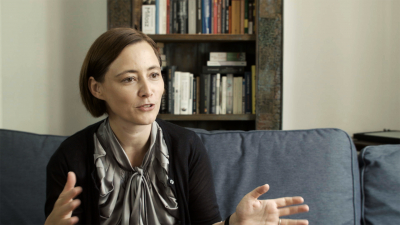
Organisation invited me the next day. I was asked if I wanted to go to South Korea to work with them because they needed someone to expand their international activity and to speak about North Korea on the international scene, especially in the United Nations. I was told that there were very few people who were tackling the topic of North Korea. It was the perfect solution for me. Later that day I came back home quite late. I went up to in the attic and got out suitcases. My das asked me: 'What are you doing?’ I answered: 'I’m going to Korea, dad.’ He replied: 'Now? In the middle of the night?' I said: 'No, but I need to prepare myself. 'I knew that it was a dream come true but I didn’t know for how long I was going there. I thought that maybe for a year, or two and then we’d spread our activity to Poland. I thought that non-governmental organisations could start preparing programmes here in Poland. But it wasn’t a year or two. I went to South Korea in June 2004, now it’s August 2017. Time passed by so quickly but I had to say that in those thirteen years I never for once thought about coming back. I think it’s my calling. I don’t like this word but I think it accurately captures how I feel about my work. I’m happy and would never change it.
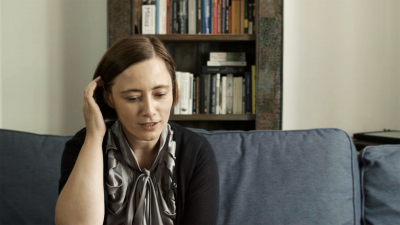
Generally, my approach was to enter the society swiftly so I could quickly master the language to be able to interview the defectors from North Korea. I spent most of my time either with South Koreans, or on mastering the language by watching something, looking up words in dictionary. For the first six months, one year actually, I was very devoted to it and thus I managed to learn the language to such a level that I was able to communicate comfortably, and most importantly, start interviewing the defectors which I wanted to do the most.

I knew that I had to do my job and do it well, so I focused on publicising, publicising and once again, publicising. I had a lot of ideas that I was bringing up to life with a help of writers, journalists and movie makers. They had the power to put the spotlight on the issue not only in Europe, but also in Asia, South America and Africa where North Korean regime’s influence is strong. It was what I really cared about. I didn’t think about work opportunities. I only wanted to contribute to saving at least some of the people. I know it sounds grandiloquent but it's the simplest thing.
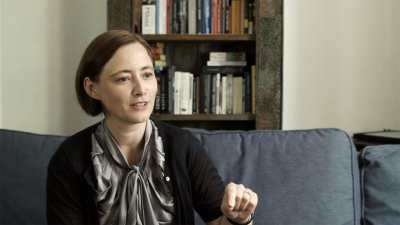
A person who grew up in the European culture focuses on individualism - 'I, I, I'. While in South Korea, generally in East cultures, the concept of 'group' applies. There is no 'I', only 'we'. Always. No one says 'my country', only 'our country'. Possesive pronoun 'our' is used to define everything. There is this big pressure to do everything in group. If there is a leader in the group, then everybody from the group will support him/her to achieve success because it is believed that what the leader does, he/she does for the sake of the group. It was very encouraging for me because I always felt as a part of some bigger family. Whatever happened in Korea - if I were sick, or if we had some problems - everyone always supported me. Everyone from the work came to visit me when I was in a hospital, they brought food. The mothers of my work colleagues, who were at home cooking for their families, prepared food for me too. People share everything. Everything is done in a group, including eating. In our culture everyone eats from their own plate while in Korea people eat together from one pot. It really helped me in my work because I always felt that I could count on my team. I meet with many acts of kindness coming from my neighbours or even from people that I don’t know that well. They call me and ask if I need anything. Even recently I got a phone call from some gentleman who said that he had read about me somewhere and he would like to send some money for me to buy a ticket and visit my parents. I told him that I was very grateful for the offer and asked him if he could donate this money to help North Korean defectors instead because they need it more and with this money we can save somebody’s life. I promised him that I will visit my parents. It was very touching, the fact that they want to share so much. It’s a lesson of humility for a person brought up in West culture.
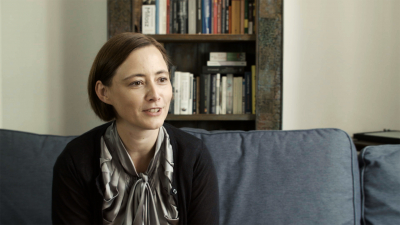
The negative thing is that everyone knows everything about everyone or want to know. It’s very difficult to separate a private life from a work life and to maintain privacy. The other negative thing is the fact that all of decisions must be made collectively. You have to switch from thinking 'I make all of the decisions myself' to 'I need to consult my decisions with my team'. Even if I’m sure that everyone would agree, I’d still have to discuss it with the rest even the most basic issues. I tried to change it in my team. I always tell Koreans to try to decide themselves when it comes to simple matters, to not ask me about everything, to learn how to make decisions on their own and how to take the initiative. This is something that I miss in South Korea. Although a lot has improved in this matter in our organization, we still discuss all of the problems collectively. This is how this culture works - you discuss everything - good things or bad things - together, in a group. In Korean there's strict social hierarchy that can be noticed in the language. If you were younger than me then we would address each other differently. That’s why the first question they ask you there is 'How old are you?' which would be something unthinkable in Poland, especially with women. In Poland you wouldn’t ask 'How old are you?' or 'Do you have a husband?' while in Korea it’s necessary to know it, not due to someone’s curiosity but to be able to establish a hierarchy and thus, know how to address a person you’re speaking to. Sometimes, due to the social hierarchy, younger people e.g. those who have just started working, don’t want to speak up about problems they encountered because they worry it would be considered innapropriate for them to discuss it with someone who’s older than them. That’s why in our office we came up with a system that if there are any problems, everyone comes to me, because I’m the person who isn’t bothered by it. Naturally, I do follow the rules but as a foreigner I’m not afraid to speak frankly to people older than me e.g. about problems at work. I’m trying to encourage young colleagues to speak to elders directly but it takes time and not everyone is able to do it. I’m not a fan of the exaggerated language cordiality. In Korean language you shouldn’t call someone by his/her name but in my workplace I introduced a rule that we use our names. The majority of people call me by my name but there are people who aren’t able to force themselves to do it so they use a different form to address me. I understand it but at the same time I’m trying to loosen up those rules a bit.
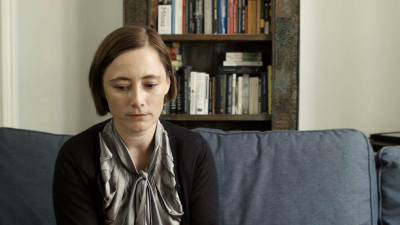
For my parents though it was an enormous experience. To them it was a similar situation to when their families had been emigrating to U.S during communist times. Contact with those who emigrated was minimal and they also didn’t come here often, they couldn’t come to visit e.g. once a year. They came back only after some years. So I suppose at the beginning my parents saw it as a some kind of separation with a very limited contact available. And also the fact that Korea is so far away, right? You can’t visit it too often, it’s not somewhere in Europe. This was definitely something pretty devastating to them. Although after some time they realised that because of my work I would be travelling a lot and, therefore, also coming home. Maybe not too often but at least once a year. Due to a technological development my parents learned how to use a computer, Skype and so on and now we can have an audio-visual contact that makes the separation easier for them. I think the whole situation is difficult not only for the parents but also for my sisters because they fear for my safety because what I do isn’t completely safe. I am working against flagitious regime and they fear for my personal safety. I believe that this is the reason behind their constant worries about me, but at the same time I can see that they’re incredibly proud. They talk to neighbours about what I do. When a new publication or a new movie comes out e.g. a couple of years ago we made a movie called „Yodok Stories”, directed by Andrzej Fidyk. Earlier he made a movie called „Defilada” (Military Parade) and after it, he came to South Korea to direct „Yodok Stories” which among others tells the story of people who fled North Korea. This is a very good document. My parents always show all of those films, books and so on to their friends and neighbours so when I come home, the neighbours invite me for a chat about North Korea. My parents treat it as a some kind of their mission to speak about all the issues and pass the knowledge on to others. I know that they’re very proud of what I do, even though they’re aware that probably I’m not going to come back to Poland in the nearest future.

After ten years [lobbying in the UN] we, me and the colleagues from other organisations, came to realise that we needed to come up with a bigger iniciative for the world to finally admit that the situation in North Korea is at the moment one of the worst in the world. In collaboration with my colleague, who was working for Human Rights Watch in Geneva, we set up the United Nations’ Commission of Inquiry on North Korea. It was a tough and stressful year. First, we had a meeting with the High Commissioner for Human Rights and two people who had spent more than thirty years in concentration camps in North Korea. Our goal was to convince the High Commissioner for Human Rights, back then it was Mrs. Navi Pillay, to issue a statement on the necessity of establishing the United Nations’ Commission of Inquiry on North Korea to investigate human rights violations. Crimes against humanity are considered second biggest category under International Law. After our meeting the statement was in fact issued. We took it as a permission to start reasoning with European governments, including Polish government, to support the resolution establishing the UN Commission of Inquiry on North Korea and its functions. The Commission was established. We were working in close cooperation with Remigiusz Henczel, former Polish ambassador, who was serving as the President of the United Nations Human Rights Council at that time. He was responsible for appointing members to the Commission. Among the members of the commission there was e.g. Sonja Biserko who was serving in Helsinki Committee for Human Rights in Serbia and a former Justice of the High Court of Australia very charismatic Michael Kirby. We were helping the Commission every step of the way by trying to gather necessary information about concentration camps, starvation, lack of freedom of movement and freedom of speech and more. Some of the more commited South Korean non-governmental organisations, only four of them to be exact, were also contributing to the work of the commission by bringing necessary documents or by helping to validate informations that had been obtained during hearings. The commission was also organising public hearings that were open to the people and the press. During those hearings the testimonies were gathered only from people who had agreed to testify publically and who didn’t have any family members left in North Korea. Others testified privately, in closed sessions.
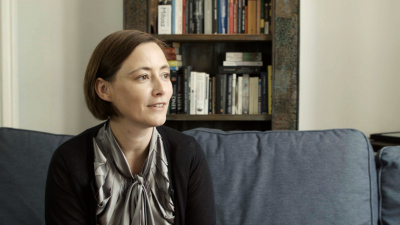
It took the commission couple of months to write a final, almost 500 pages long report based on gathered information. The report confirmed that human rights violations in North Korea had reached the threshold of crimes against humanity and its conclusion was to bring the government of North Korea, especially the leaders, to International Criminal Court (ICC). It was an amazing success for us. We almost cried of happiness when the resolution passed and all of the European governments stated as one that the North Korean government has to be held accountable for their crimes and thus, they asked The United Nations Security Council to refer the case to the International Criminal Court.
The other thing that I wanted to mentioned earlier, at establishing the commission, preparing the report and bringing the case to International Criminal Court, was the feeling of enlightenment of how much work we had done. It took only ten years. For a non-governmental organisation it’s nothing. People were fighting with Communism for a decades. Ten years doesn’t seem much in the international arena. Birma’s case was taken up regularly and even after twenty-thirty years, there wasn’t as much done as in North Korea’s case during these ten years. I remember our first visits in the United Nations as well as first meetings with different diplomats weren’t successful at all. Especially those from Southeast Asia and Africa- they didn’t want to talk to us at all, literary threw us out. To be able to see the change, the acknowledgement of North Korea’s crimes and the resolution to bring those responsible e.g. chiefs of concentration camps to trial is an immense inner experience for me. I realized that people tend to think that they don’t have much to say in their life, that they’re only a speck of dust in the universe and yet, only few people working together can make a huge change. It’s not the one person that counts, but those few people with a common goal for the others. Not for me personally, not for my work, not my personal success but for others. That opens any door basically. People sense naturally if you're doing this for fame, career, money... Obviously in NGOs you can talk about hardly any money. Each person senses naturally if you're doing this for the cause or not. I had an enormous luck, because I met truly amazing people with whom I was able to achieve some incredible things and that’s not all, because we have plenty of ideas fo the next ten years.
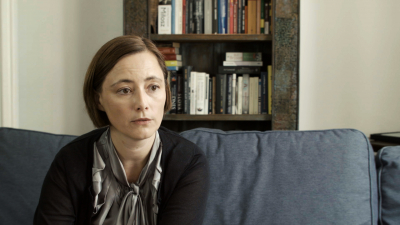
If I didn’t believe that the Korean reunification is possible, I wouldn’t probably work where I work. Hope motivates people to work. I really believe that I will witness the reunification in my lifetime. I deeply believe in it. I even came up with my own joke because a lot of people ask me this question. When they ask me this question about the reunification or if I'm asking it I can determine if a person I’m talking to is an optimist or a pessimist. When somebody asks me: "What are you waiting for? What is your motive? How long are you planning to stay?", I tell them: "Until reunification, I am waiting for reunification". And person responds: "Oh God! May God bless you child, you won't live to see it" - I know that I am speaking to a pessimist. There are people that say: "Great! I know this regime will fall soon!" - and I know I am speaking to an optimist. People are divided into two camps and react accordingly. I truly believe in the Korean reunification, so do thirty thousands of North Koreans who fled the country.

In 2003 and 2004 when we were lobbying in the United Nations, we got some information from people who had fled the country that the situation had in fact improved, especially for women. In 2000s defectors influx, consisted mainly of women, was enormous. At that time in China human trafficking flourished. Young, fifteen-sixteen years old girls were sold to older men, sometimes to the whole families and raped. If those women were caught by the Chinese police, they were immediately sent back to North Korea due to the fact that Chinese people don’t consider North Koreans refugees, but rather illegal immigrants. When in North Korea, such a woman would be sent either to prison or to concentration camp and if it turned out that she was pregnant, she would either have to have an immediate abortion or she would be forced to give birth and afterwards, the infant would be murdered. The situation did improve a bit. Rate of infant homicide decreased, women were treated better than before when they were constantly beaten up or tortured. Some prisons changed a little bit the way they used to operate, even going so far as making prisoners to sign up a document confirming that their human rights were not being violated. For us it was a confirmation that even though in the international arena North Korean government loudly expresses their dissatisfaction, they in fact feel the political and economical pressure coming from the international community in a form of a resolution that now comes twice a year. It was very important for me to hear it because it gives me hope that if there is less beatings, more people can survive. There is a chance that more human lives will be spared.
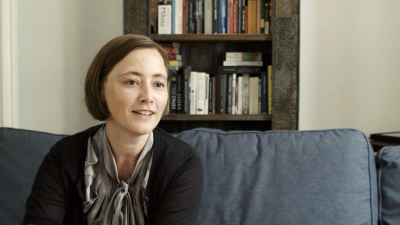
I think that being outside the country is a good thing, especially for Poles who are very sentimental, national, patriotic and have troubles distancing themselves from things. I observe the situation in Poland but I’m able to get a distance. If someone's more involved I always say that I look at things differently because I am looking at it from different perspective. I look at everything e.g. political situation from South Korea’s perspective which is actually a very good filter. I’m more concerned with Korean news because it’s a part of my work but I’m regularly provided with informations about Poland by my mother who talks a lot, just like me. Our conversation at Skype is divided into chatting about private matters and discussing the situation in the country. To sum up, my parents provide me with necessary information and are my filter.
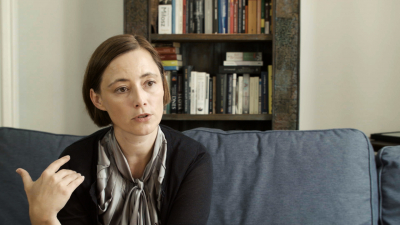
I don’t cooperate with the regime. I’d rather say that I pose a sort of a threat to it. My work focuses on dispelling the myth about North Korea being a wonderland that the regime tries to promote around the world. We experienced some unpleasant situations in South Korea e.g. we received strange phone calls, letters with threats or with poison. I personally didn’t receive any threats but recently I was criticised by the North Korean press agency. I didn’t feel any direct danger. I’m aware that there is always a chance that something might happen. There were attempts to attack humanitarian activists working in China who helped the defectors. North Koreans who fled the country and are in possession of important information and are politically and internationally involved. They have their own security and don’t go anywhere without it. I believe that as for me as a foreigner, someone not from North Korea, the risk of being targeted is smaller. Besides that, I’m a person who is known worldwide so if the regime decided to eliminate me, it would be obvious for the world who did it. I think it would bejust pointless for them to do it. Every person who decides to work in a humanitarian organisation has to be aware of the possibility that something in fact might happen. It’s included in the humanitarian work or work dealing with the human rights in conflicted areas, be it Syria, North Korea or Iraq. Obviously one has to be aware that something dangerous might happen. It's in the cost of work but it’s not something I think about everyday. I have a strong cat at home that will always protect me. I’m joking of course, but as I said before, I don’t think about the possible danger everyday.
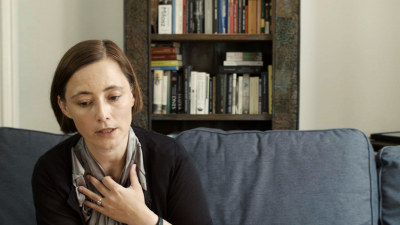
Through a contact with a foreigner they start to realise that people can have a different attitude toward things or behave differently. Language and culture are constantly evolving. Not only a decreasing number of foreigners in South Korea led to this change but also the North Koreans themselves. In a way they’re one nation, but due to such a long separation North Korea’s language and behaviour differs from South Korea’s. We’re living together in a community, so we have to adjust by accepting some rules and being assertive at the same time. South Korean society is still closed but it’s slowly opening up to foreigners and their cultures.



